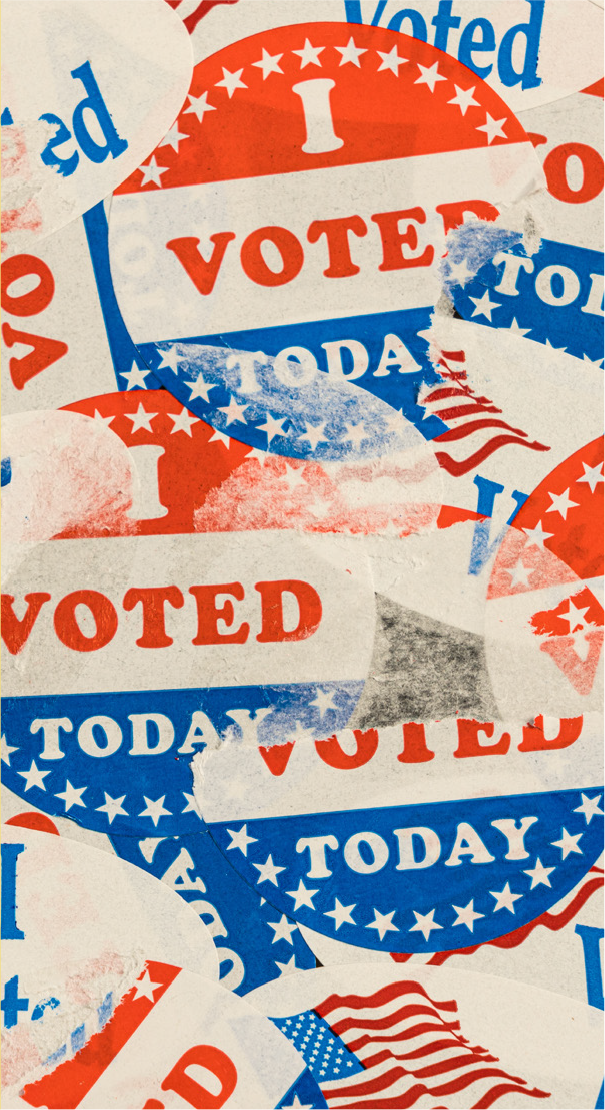Note: This election reflection was submitted and finalized prior to the insurrection at the US Capitol on January 6, 2021. In the aftermath of the insurrection, the author added a note to the end of the piece.
In How Democracies Die, Stephen Levitsky and Daniel Ziblatt (2018) argue that a key indicator that a democracy’s life is in danger occurs when the “guard rails” that restrain the ruthless pursuit of power begin to fray. Among these guard rails is respect for the integrity of democratic elections. President Donald Trump’s repeated, flailing efforts to delegitimize the results of the 2020 presidential election with baseless assertions of election fraud and a flurry of frivolous lawsuits should be understood in that light. While scholars, pundits, and citizens ponder the long-term ramifications of Trump’s effort to delegitimize democratic elections on the future of American democracy, they obscure a central fact: Trump intended to steal the election from the very beginning.
The plot to steal the elections started well before the 2020 presidential campaign began in earnest. Donald Trump recognized early on that former Vice President Joe Biden represented the biggest threat to his re-election.Footnote 1 Polls consistently found that Biden performed better against Trump than all of his other Democratic challengers. Fear of Biden motivated Trump’s infamous call on July 25, 2019 to Ukrainian President Volodymyr Zelen-sky—and the elaborate efforts to cover it up. All of it was aimed at sabotaging the campaign of the person who Trump saw as his chief political rival. This is why the president was impeached. By using the power of his office to purposely attempt to cripple the campaign of his strongest opponent, Donald Trump displayed one of the quintessential characteristics of autocrats. Moreover, by inviting foreign interference into American elections, the president engaged in the very conduct which motivated the Framers to include the mechanism of impeachment within America’s constitutional design. By acquitting Donald Trump despite overwhelming evidence of the president’s guilt, Senate Republicans cosigned onto Trump’s assault on the sanctity of democratic elections.

Once the COVID-19 pandemic gripped the nation, Republicans and the Trump campaign saw this as a monumental opportunity to suppress the vote on an epic scale. Numerous surveys indicated that Democrats took the pandemic far more seriously than Republicans.Footnote 2 Therefore, perhaps the GOP figured that the pandemic would scare millions of potential Democratic voters away from the polls. In addition, the Trump campaign and Republican operatives filed hundreds of lawsuits around the country prior to the election in an unprecedented legal blitzkrieg to limit ballot access, focusing especially on mail-in voting. Footnote 3 Trump attacked the integrity of mail-in voting at every turn, repeatedly insisting—without evidence—that the process was rife with fraud and thus cannot be trusted.
Trump’s plan was simple: count on a huge surge of Trump voters flocking to the polls on November 3 to give him the lead so that he could claim victory on Election Night. Because Biden voters expressed an overwhelming preference for voting by mail, it would take days for their votes to be counted.Footnote 4 Having already portrayed mail-in balloting as inherently fraudulent, Trump lawyers would go to court to have Democratic ballots disqualified after the election to secure a win for the president. It did not matter if the president actually garnered more votes than Vice President Biden or not. As long as Trump kept the race close enough, he would use his lawyers to do the rest. Trump’s team targeted Pennsylvania in particular for this conspiracy to nullify the votes of the American people. Adding insult to injury, the president was quite transparent about why he believed the Senate should confirm Amy Coney Barrett before the election: a full court was needed in case it needed to resolve any disputes regarding the 2020 election. He assumed that any legal controversy coming to the Supreme Court would be decided in his favor. All in all, it was a foolproof plan. Except for the fact that it didn’t work.
Rather than suppressing turnout, voters turned out in droves despite a pandemic to cast their ballots. Over 80 million Americans voted for Biden, the most votes ever received by a presidential candidate in American history.Footnote 5 The president’s plan to declare victory prematurely fell apart when Arizona and Georgia were first declared “too close to call” on Election Night, then later ultimately won by Biden. In the end, the election turned out to not be close enough to allow Trump’s legal scheme to work. Thus, the president’s planned heist of democracy was reduced to wild conspiracy theories, unhinged Twitter rants, and evidence-free legal filings that resonated better on social media than in actual courtrooms.
But the fact that Trump’s coup attempt—his blatant campaign to be declared the winner of the presidential election despite losing both the popular vote and not garnering a majority in the Electoral College—failed should not obscure the fact that this moment represents a “red alarm fire” for American democracy. Despite President Trump’s repeated assaults on democratic values, the rule of law, and his worst-in-the-world management of the COVID-19 crisis, he still garnered over 73 million votes— the most ever by a sitting president—suggesting an alarmingly large constituency in America for autocracy.Footnote 6 Republican establishment figures, instead of resisting Trump’s steady march toward autocracy, with rare exceptions, became apologists for his repeated displays of authoritarianism. Even after the returns showed that he had clearly been defeated, not only did most congressional Republicans stand idly by while Trump baselessly attacked the integrity of an election, but a majority of House Republicans and a minority caucus of Republican Senators actively joined the conspiracy to overturn the will of the voters.Footnote 7 Because of the president’s demagoguery, only a quarter of Republican voters, according to a recent NPR/PBS News Hour/ Marist survey, say that they trust the legitimacy of the 2020 election results.Footnote 8 Trump not only salves his bruised ego, but he sows the seeds for the right to regard President Joe Biden as an “il-legitimate president.” This will only further radicalize his ardent supporters, determined to avenge Trump’s defeat.
These actions by Trump and his Republican allies are not isolated events. Rather, they are consistent with a pattern of behavior that by the Republican party has engaged in recent years which, according to Levitsky and Ziblatt, are consistent with the breakdown of democracy. These include denial of the legitimacy of their political opponents and the toleration or encouragement of political violence. The Trump presidency has exacerbated these trends. In short, Trump departed office on January 20, but the damage that his legacy has done to American democracy is far from over.
AUTHOR’S NOTE
Since the original submission of this piece, a mob of Trump supporters, inspired by his incendiary rhetoric and repeated fact-free claims that the 2020 election was stolen, stormed the US Capitol on January 6, 2021, in a violent, but ultimately unsuccessful, attempt to prevent Congress from certifying the Electoral College victory of Democrat Joe Biden. Trump’s incitement of the January 6th insurrection represented the culmination of an 18-month campaign to steal the 2020 election, starting with the July 25, 2019 phone call to the president of Ukraine to pressure him into starting an investigation into the man he saw as his strongest potential rival. The fact that 147 Republicans, despite the deaths at the Capitol, voted not to certify the election provides further evidence for the central argument in this article that America’s democratic norms are fraying. ■
ABOUT THE 2020 ELECTION REFLECTIONS SERIES
Kimberly Mealy, American Political Science Association
Prior to the 2020 election, APSA’s Diversity and Inclusion Programs Department issued a call for submissions for a PS Now series entitled 2020 APSA Election Reflections. Election reflections are scholarly reflections, original research notes, and classroom exercises that shed light upon political behavior, public opinion and the 2020 Campaign and Election season. Submissions addressed the 2020 local, state, or national campaigns and elections.
The call for submissions was especially interested in featuring content that addresses the political behavior and public opinion of individuals from the following groups: underrepresented racial and ethnic groups, women, individuals with disabilities, first-generation Americans, the Indigenous community, and the LGBTQ community. We also welcomed submissions that included reflections on race, power, governance, social injustice and oppression in relation the 2020 election season. The Election Reflections in this magazine were originally published on Political Science Now. The views expressed in this series are those of the authors and contributors alone and do not represent the views of the APSA.



